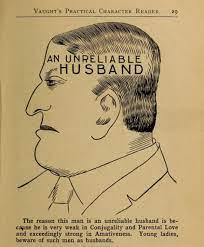Share with the group please.
Left Wing Melancholia by Enzo Traverso. It's good, but I guess also a somewhat sobering read. Really drives home the point that the modern left lacks any common sense of hope compared to its predecessors, and has somewhat fallen to a complex of victimhood vs martyrdom and cannot choose either. Past socialist movements from the Spartacists to the Jewish uprising in the Warsaw ghetto to Guevara's fiercely defiant last words all retained in them an implacable sensation of hope even as they were crushed.
I'm still on the first couple chapters, I think I'd recommend it
Yes, I must say the idea that in the last couple decades the left has largely fallen into a state of doomerism, other-blaming, victimhood, and ineffective lifestyle politics quite convincing. We really do need a kick up the arse.
Just finished chapter 15 of Capital vol. 1. Whew, that is one tough chapter to get through. Not because the concepts are difficult, but because it's over 100 pages and tbh Marx gets a bit repetitive here. Or maybe it just seemed that way because I've been listening to The Condition of the Working Class in England at the same time and there's a lot of crossover.
And just love that pic btw. Just some comrades chilling and reading under a tree. Maximum :comfy: vibes.
What do you think of The Condition of the Working Class in England? I think it can be very dry in some parts but its still definitely one of my favourite books, pretty sure it was one of the first left wing books I read.
It's very good. I think every socialist should read it. I think it works great as an audiobook, which isn't true for most theory books. The level of suffering is hard to imagine. It's helpful I think to read this book in tandem with Planet of Slums. Because when you bring up the book to any lib or chud, their response every time is that "sure things were bad back then but it's better - capitalism lifts all boats!" Planet of Slums clearly outlines how all that misery has just been outsourced to the global south.
I have only two very mild criticisms of Engels. And they aren't really criticisms even, just things I wish he'd included.
-
He always brings up data points like "there are 2,000 workers employed in nail factories in Wigan"... but he never really gives a sense of perspective regarding how large the working class is in relation to other classes. Were they the majority at that time? A large minority? Engels never says. The absolute numbers are useful and have their place but I wish he wouldn't solely rely on them.
-
I wish he would have done more to explain how, it is very possible if not likely that workers had a better life under earlier stages of capitalism and/or feudalism
But overall I love it and highly recommend it.
I agree, I think its a phenomenal book and it was a big reason Engels and Marx struck up their friendship and got Marx more interested in economics. You're 100% right about the problems Engels writes about not disappearing but simply being shipped off to the periphery. But even within the west a lot of the problems are still there. For example, Engels has a part about how a lot of the time poor areas are glammed up on the outside if they're in view of the wealthy people or if they might affect the business of nearby shopping areas but behind the pretty veneer the same problems are left untouched. And I read that around the same time as the Grenfell Tower fire happened, where poor housing was wrapped in flammable cladding so it would look nice and not devalue nearby wealthy properties. Same things, 160 years apart.
I also agree on the first point, its hard to get a sense of perspective when he says x number of people were sent to the workhouse without knowing how many people live in that city or how it compares to other places. With your second point, I think the idea of the book was to show people in Germany what life was like in the most advanced capitalist society and therefore what lay ahead for themselves. As such I think the reader at the time would be expected to deduce for themselves the differences between life in England and Germany, although obviously that's a lot more difficult for us now lol.
I think its good to read The Ragged Trousered Philanthropists alongside Engels. Granted, its a fictional book and it was written around 60 years after TCOTWCIE but I think it gives a very good account of the problems Engels writes about but from the first person perspective of working class people themselves.
-
Capital volume 1. I'm only on chapter 3, but I did make it through the like 8 different forewords and all the footnotes so far.
I've been reading How to Blow Up a Pipeline for the book club, which we'll out the post up for the discussion tomorrow.
I'm still reading The Enemy Within about the 1984-85 miners strike. I've just finished a chapter that focused on the international response to the strike. There was a big contrast between the response of the Soviet Union to the strike in the 1980s to the general strike of 1926. Back in 1926 there was a massive amount of support that came from the Russians, they'd donated more money to the strike fund than everyone else in the world combined, including the British themselves. In the 80s, however, some aid was given in the form of letting striking workers visit the SU for holidays or for education but there wasn't really much material aid despite the unions pleading for it for many months. Eventually they cam up with a £1,000,000 donation but that wasn't until the strike had ended and it was given only to an international solidarity fund rather than to the British miner's organisations directly. A big reason for this was Gorbachev getting cozy with Thatcher and not wanting to ruin the relationship by throwing his weight behind the strike effort.
In contrast, the French unions gave a massive amount of support. They organised convoys of food and clothing aid to go to the mining communities, they refused to move any coal or oil heading for Britain, they gave financial aid and helped funnel financial aid from other countries. They even went as far as getting some advice from some people who'd been in the French resistance during ww2 so they could then go out and sink some of the boats filled with coal for Britain. Really outstanding displays of solidarity that I hope we can regain someday.
Started a book club with some of my friends and we’re starting with the dispossessed by Le Guin. Anyone have good bite sized theory recommendations for when it’s my turn to pick the reading? We’re all lefties though the militancy levels vary across the group and I already checked that people are cool with non-fiction so theory would be fine
Wage Labor and Capital or Value, Price and Profit are pretty good if you want smaller bits of theory. if you want something more recent there's Capitalist Realism, People's Republic of Walmart, Open Veins of Latin America, The Jakarta Method, etc.
A few suggestions that have been well received in my bookclub which is composed of lefties and some libs -
Blackshirts and reds
Bullshit Jobs
This nonviolent stuff'll get you killed
I’m rereading Devil take the Hindmost, it’s a very good history of the stock market and all the scams and bubbles and failed corners and crashes. The reason I wanted to read it again is it seems the entire history of the institution was being replayed in speedrun mode by Crypto and NFT shit. There’s a section of the book that talks about a bubble in the early 19th century that literally had people buying out stocks in companies that didn’t disclose what the company would do or make or sell, just that it would appreciate, exactly like all the NFT projects that don’t even specify what the project is. Very instructive.
Malazan: Book of the Fallen. I'm like 6 books in, but the 5th one gets pretty openly anticapitalist. Like I could pull block quotes from it about debt and it would be a scathing critique of America with a few fantasy names changed to real world places.
Economic problems of socialism in the USSR by Joseph Stalin :stalin-pipe: , with commentary from Mao Zedong :mao-wave: . Finished Trans liberation & One-Dimensional Man last week.
I'm reading Pandora's Star, which is fairly bog standard space opera shit but with one of the protagonists being a scientist who is also a member of a socialist party within an interstellar human civilization, a neat mystery about possibly discovering a more advanced alien civilization constructing a Dyson sphere, some very pointed critiques of capital and multiple queer characters.
Just this week I started to try and get back into reading, so I'm starting with something easy.
Michael Crichton's "Congo"
I know the man was a bit of a chud, and some of his books have some, problematic elements. But god damn am I just a sucker for his brand of sci fi tech thriller.
Chrichton doesn’t get enough credit for knowing how to write actions scenes. There’s something in his prose that really grips you and gets the adrenaline pumping even if the rest of his writing elements aren’t the greatest. The michael bay of novels
Great way of describing it. He has about 5 different archtypes for his characters that he uses in every book, and they are never really fleshed out all that much, but besides that the action sequences are absolutely top notch, and I love the technical knowledge that he researches to more accurately describe whatever is going on. I mean, how many other fiction books regularly end with a bibliography??
Finished AJP Taylor's The Struggle For Mastery in Europe, 1848-1918 and China Mieville's The City and The City this week. Started Frederick Brown's For the Soul of France: Culture Wars in the Age of Dreyfus.
Still slowly reading Bordiga at home. What is with compilations of Italian Marxists and having hundred-page introductions?
Omg I read the city and the city with @doubleimps and it was good! The ending wasn't my favorite but a very fun read overall
I rewatched the adaptation, one episode whenever I finished a section. It has some things going for it but it made several significant changes I found baffling in hindsight. For example the climax at the border checkpoint is considerably better and more tense in the book.
Oh, nice. I'm rereading Perdido Street Station. First time I kinda stopped in the middle, picked it back up later. Enjoying this read much more. I'd like to check out his other works at some point.
I haven't read Perdido but plan to in the future. I did read Iron Council last year though and it ruled even if the setting is really weird for a newcomer.
Finishing Empire's Workshop by Greg Grandin cits a fascinating story told from a Marxist historical perspective detailing how 20th century Latin America was cutting America's teeth in preparation for its excursions into the Middle East. Great stuff, especially if you don't already know the nasty details of our military minds at work
Almost done Dracula and about to start what is to be done :blob-no-thoughts: I'm loving Dracula, especially Mina and Arthur and appreciated the great platonic relationship between Mina and Lucy. I think im gonna recommend it to my aromantic friend
Also started reading the big oyster: history on the half shell, while at work and its been interesting but the author isn't great on indigenous history and apparently didn't bother to do basic research on some stuff :/
I started reading it at work because I figured it wasnt something I was going to want to take notes on and so far I def want to take some notes. I think ill copy them to a scratch pad I have there and then bring it home when I'm done the book and copy the notes into my reading journal




